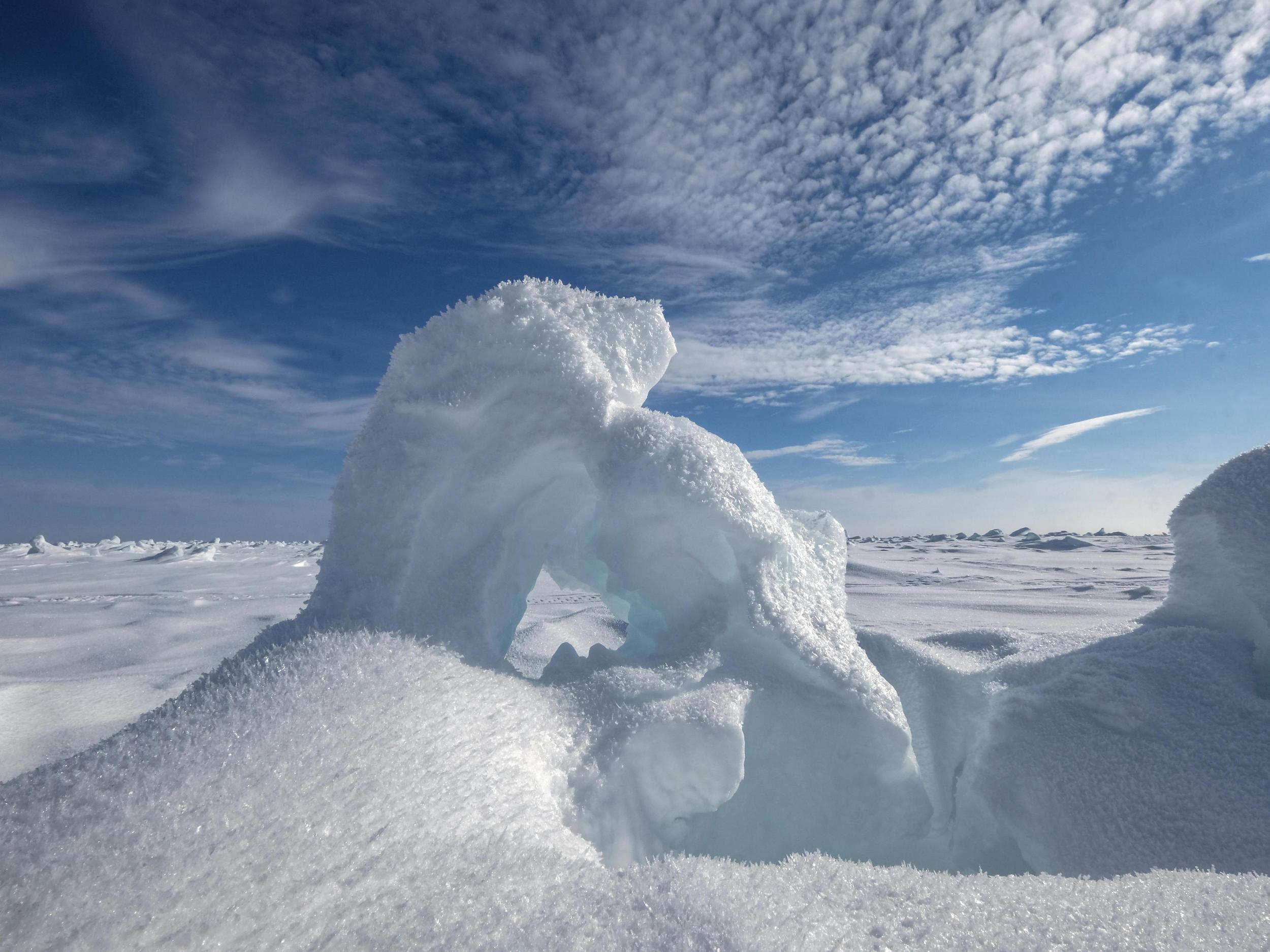Harsh winters are not triggered by loss of Arctic sea ice, study finds
Connection between Arctic sea ice loss and extreme cold weather has long been studied by scientists

The dramatic loss of Arctic sea ice by climate change does not cause severe cold weather in moderate latitudes, new research suggests.
The possible connection between Arctic sea ice loss and extreme cold weather – like the polar vortex cold waves in North America – has long been studied by scientists. This is because when regional sea ice cover is reduced, swathes of Asia and North America often also experience unusually cold and hazardous winter conditions.
A study by experts from the University of Exeter, the Royal Netherlands Meteorological Institute and the Energy and Sustainability Research Institute in Groningen has found reduced regional sea ice often coincides with cold winters but does not cause them.
Scientists combined observations over the past 40 years with results from sophisticated climate-modelling experiments.
The correlation between reduced sea ice and extreme winters across the mid-latitude occurs because both are simultaneously driven by the same, large-scale atmospheric circulation patterns, according to the paper published in the journal Nature Climate Change.
It shows that reduced sea ice only has a minimal influence on whether a harsh and severe winter will occur.
Lead author Dr Russell Blackport, from the University of Exeter, said: “The correlation between reduced sea ice and cold winters does not mean one is causing the other.
“We show that the real cause is changes in atmospheric circulation which moves warm air into the Arctic and cold air into the mid-latitudes.”
Over recent decades, the Arctic region has experienced warming temperatures through climate change, which has led to a large decline in sea ice cover.
This reduction has seen areas of open water increase, which in turn allows the ocean to lose more heat to the atmosphere in winter. This can potentially alter the weather and climate, even well outside the Arctic.
Recent studies have suggested that the reduced sea ice or Arctic warming has contributed to recent cold winters experienced in the mid-latitude region and that as the sea ice reduces further through climate change, cold winters will become more frequent and severe.
The study suggests that reduced sea ice is not the main cause of the cold winters, which instead are probably caused by random fluctuations in atmospheric circulation.
Professor James Screen, also from the University of Exeter, added: “There are many reasons to be concerned about the dramatic loss of Arctic sea ice, but an increased risk of severe winters in North America and Asia is not one of them.”

Join our commenting forum
Join thought-provoking conversations, follow other Independent readers and see their replies
Comments
Bookmark popover
Removed from bookmarks